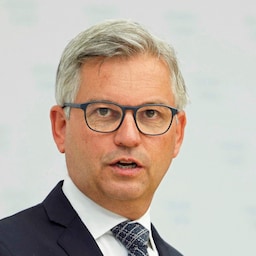Cheap goods at the border
Danger to life! Customs officers stopped 163,000 products
Last year, local officials withdrew thousands of dangerous products from circulation: toys, pharmaceuticals and electronics from the Far East in particular caused a stir. The number of rejections even tripled ...
2023 proved to be a very successful year for the Austrian customs office, especially in the area of market surveillance, as the current balance sheet shows. By way of explanation: In market surveillance, customs checks compliance with safety standards, norms and other legal regulations on product safety in the context of imports.
Increase of almost 50 percent in notifications
Notifications to the competent authority alone rose from 247 in 2022 to a whopping 366 in the previous year. This represents a significant increase of almost 50 percent. According to the responsible Ministry of Finance, the reason for the increase is "intensified and very targeted controls" and the flood of defective fake goods from notoriously cheap countries in Asia, Africa or Central and South America.
Of the 366 reports, 254 resulted in potentially dangerous goods being stopped before they could reach the free market - a success rate of just under 70%. The remaining products were released for free circulation after modification. The number of rejections almost tripled to 217. 163,053 products were rejected in total. More safety for end customers in the country.
Defective electronics and dangerous toys
In January 2023, for example, power adapters were registered for the free movement of goods. Upon inspection, it turned out that the devices had a CE marking, but the instructions for use and the EU papers were missing. The word "adapter" was misspelled as "adaptor" instead. The symbol for separate collection was missing and the energy consumption label was obviously fictitious. In an emergency, these products can cause serious short circuits or even fires. Fire safety experts confirm that this is not the first time this has happened.
Naturally, children's toys are also a particular focus. These are subject to a high standard in the European Union, but elsewhere the safety of the little ones is often taken lightly. In September 2023, customs officers discovered model trains during an inspection of a consignment, but the necessary instructions for use and safety information were missing. The shipment went straight back to the manufacturer in the Far East.
We protect our citizens, and children in particular, from potentially serious injuries with close controls.

Finanzminister Magnus Brunner ist ein großer Fan von strengen Zollkontrollen an den rot-weiß-roten Grenzen.
Bild: REUTERS
"By tripling the number of rejected shipments, we are sending a strong signal in the fight against the flood of unsafe products. Electronics, toys and medical products in particular were the frontrunners, with 80,600 such dangerous products being rejected or destroyed," said Finance Minister Magnus Brunner.
Incidentally, record levels of defective imported goods are also forecast for the current year. As is so often the case, it is the Internet that makes this possible.
Asian plastic is particularly full of toxins
China is the world's largest producer of plastics and is also responsible for a considerable amount of plastic waste that pollutes the environment, including its own rivers and coasts - according to a crystal-clear analysis by environmental organizations.
However, danger lurks not only in disposal, but also in production! Particularly polluted: Cheap toys, which are imported by the billions. The number of reported articles containing banned chemicals has been rising for years. Many products come from China. According to environmentalists, platforms such as Amazon and eBay are an uncontrolled gateway.
Toys for children bought online can contain high concentrations of harmful chemicals that have long been banned in the EU. Due to the booming online trade, products from China that are contaminated with plasticizers or other carcinogenic substances are increasingly coming to light, according to a legal opinion by the German Federation for the Environment and Nature Conservation (BUND).
Greenpeace head Alexander Egit therefore called for the laws in force to be sufficiently adapted to the digital world. Unfortunately, e-commerce is not yet being monitored in the same way as bricks-and-mortar retail. "And this means that harmful substances could potentially end up in our children's bodies," warns the experienced environmental activist.
This article has been automatically translated,
read the original article here.












Kommentare
Willkommen in unserer Community! Eingehende Beiträge werden geprüft und anschließend veröffentlicht. Bitte achten Sie auf Einhaltung unserer Netiquette und AGB. Für ausführliche Diskussionen steht Ihnen ebenso das krone.at-Forum zur Verfügung. Hier können Sie das Community-Team via unserer Melde- und Abhilfestelle kontaktieren.
User-Beiträge geben nicht notwendigerweise die Meinung des Betreibers/der Redaktion bzw. von Krone Multimedia (KMM) wieder. In diesem Sinne distanziert sich die Redaktion/der Betreiber von den Inhalten in diesem Diskussionsforum. KMM behält sich insbesondere vor, gegen geltendes Recht verstoßende, den guten Sitten oder der Netiquette widersprechende bzw. dem Ansehen von KMM zuwiderlaufende Beiträge zu löschen, diesbezüglichen Schadenersatz gegenüber dem betreffenden User geltend zu machen, die Nutzer-Daten zu Zwecken der Rechtsverfolgung zu verwenden und strafrechtlich relevante Beiträge zur Anzeige zu bringen (siehe auch AGB). Hier können Sie das Community-Team via unserer Melde- und Abhilfestelle kontaktieren.